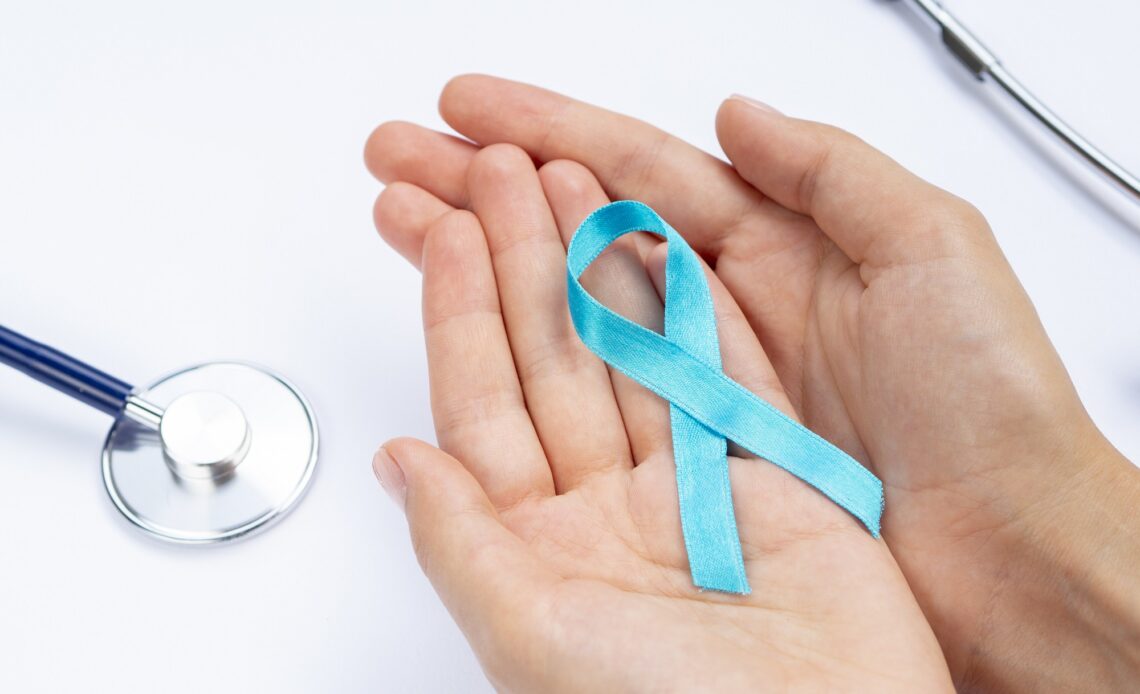Cancer is a formidable adversary that has affected millions of lives worldwide. As the global incidence of cancer continues to rise, it has become increasingly crucial to prioritize preventive measures and early detection strategies. Regular screenings and check-ups play a pivotal role in this endeavor, providing individuals with the opportunity to identify potential health concerns before they escalate into more severe conditions.
Early detection is the key to successful cancer treatment and management. When cancer is caught in its early stages, the chances of successful treatment and long-term survival are significantly higher. Regular screenings, such as mammograms, colonoscopies, and Pap smears, can detect abnormalities and potential signs of cancer before they become symptomatic. This proactive approach allows healthcare professionals to intervene promptly, increasing the likelihood of positive outcomes and reducing the burden on the individual and the healthcare system.
Moreover, regular check-ups with healthcare professionals offer a valuable opportunity to discuss personal health history, risk factors, and any concerning symptoms. These discussions enable healthcare providers to make informed recommendations on the appropriate screening tests and preventive measures tailored to the individual’s needs. By engaging in open and honest communication with their healthcare team, individuals can take a more active role in managing their health and reducing their risk of developing cancer or other chronic conditions.
The Role of Early Detection in Preventing Cancer

Early detection is the cornerstone of effective cancer prevention and management. Early detection of cancer can lead to more effective, less invasive, and more successful treatments. Delayed detection of cancer can allow the disease to progress, making treatment more difficult and increasing the risk of complications and a lower quality of life.
The benefits of early detection extend beyond the individual level. Catching cancer in its initial stages can also have a significant impact on the healthcare system as a whole. Early intervention can lead to reduced healthcare costs, decreased burden on medical resources, and improved overall patient outcomes. By prioritizing regular screenings and check-ups, individuals can actively contribute to the broader effort to combat the rising prevalence of cancer and promote more efficient and effective healthcare delivery.
Furthermore, early detection can provide individuals with a sense of empowerment and control over their health. Knowing that they are taking proactive steps to monitor their well-being can alleviate anxiety and foster a greater sense of personal responsibility for their own healthcare. This proactive approach can also inspire others to follow suit, creating a ripple effect of increased awareness and engagement in preventive healthcare measures.
Common Types of Cancer that Can Be Detected Early
While cancer can manifest in various forms, certain types of cancer are particularly well-suited for early detection through regular screenings and check-ups. These include breast cancer, cervical cancer, colorectal cancer, and prostate cancer, among others.
Breast cancer, for instance, is one of the most common forms of cancer affecting women worldwide. Regular mammograms, which are X-ray examinations of the breasts, can detect abnormalities and potential signs of cancer at an early stage, when the disease is most treatable. Similarly, Pap smears and human papillomavirus (HPV) tests can identify precancerous changes in the cervix, enabling early intervention and prevention of cervical cancer.
Colorectal cancer, which affects the colon and rectum, is another example of a cancer that can be effectively detected through regular screening tests, such as colonoscopies and fecal occult blood tests. These procedures can identify polyps or other abnormalities in the digestive tract, allowing healthcare professionals to remove them before they develop into cancerous lesions.
Prostate cancer, a common form of cancer in men, can also be detected through routine check-ups and screening tests, such as the prostate-specific antigen (PSA) blood test and digital rectal examinations. Early detection of prostate cancer can significantly improve the chances of successful treatment and long-term survival. By recognizing the importance of regular screenings for these and other types of cancer, individuals can take a proactive approach to their healthcare and increase the likelihood of early detection and effective treatment.
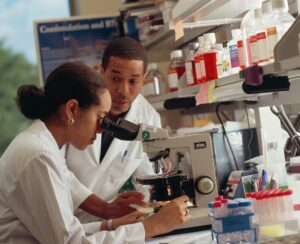
Recognizing the Signs and Symptoms of Cancer
While regular screenings and check-ups are essential for early detection, it is also crucial for individuals to be aware of the potential signs and symptoms of cancer. By recognizing these indicators, individuals can seek medical attention promptly and increase the chances of early intervention.
Common signs and symptoms of cancer may include persistent changes in bodily functions, such as unexplained weight loss, fatigue, or changes in bowel habits. Individuals may also notice unusual lumps, growths, or changes in the appearance of their skin or other body parts. Persistent pain, unexplained bleeding, or difficulty swallowing can also be potential signs of cancer.
It is important to note that the presence of these symptoms does not necessarily indicate the presence of cancer. Many of these signs can also be associated with other health conditions. However, it is crucial for individuals to pay attention to their bodies and report any concerning changes to their healthcare providers promptly.
By being vigilant and proactive in recognizing potential cancer symptoms, individuals can empower themselves to seek timely medical attention and increase the likelihood of early detection and effective treatment. Healthcare professionals can then work with the individual to determine the appropriate screening tests and next steps based on their specific health concerns and risk factors.
The Benefits of Early Detection for Successful Treatment
Early detection of cancer is a game-changer when it comes to successful treatment and long-term outcomes. Early detection of cancer can lead to a more favorable prognosis and treatment options compared to cases with advanced disease.
One of the primary benefits of early detection is the increased likelihood of successful treatment. When cancer is caught early, it is often more localized and has not had the opportunity to spread to other parts of the body. This allows healthcare professionals to implement targeted and less invasive treatment approaches, such as surgical removal of the tumor, targeted radiation therapy, or specific drug therapies. These treatments are often more effective and have a higher success rate, leading to better outcomes for the individual.
Early detection also reduces the risk of cancer-related complications and the need for more extensive and aggressive treatments. When cancer is caught early, the disease is typically less advanced, and the individual’s overall health is often better. This means that they are more likely to tolerate and respond positively to treatment, leading to a higher quality of life during and after the treatment process.
Additionally, early detection can have a significant impact on the individual’s emotional and psychological well-being. Knowing that the cancer has been identified and addressed in its initial stages can provide a sense of hope and empowerment, reducing the anxiety and stress often associated with a cancer diagnosis. This can, in turn, contribute to a more positive outlook and better overall mental health during the treatment and recovery process.
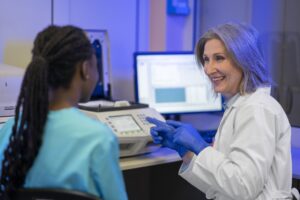
Recommended Cancer Screenings and Check-ups for Different Age Groups
Maintaining a regular schedule of cancer screenings and check-ups is essential for individuals of all ages. However, the specific recommendations may vary based on age, gender, and individual risk factors. It is crucial for individuals to work closely with their healthcare providers to determine the appropriate screening and check-up schedule that best suits their needs.
For younger adults, common recommended screenings may include clinical breast exams, Pap smears, and HPV testing for cervical cancer prevention. As individuals reach their 40s and 50s, additional screenings, such as mammograms for breast cancer and colonoscopies for colorectal cancer, become important considerations.
As individuals enter their 60s and beyond, the recommended screening schedule may expand to include tests for prostate cancer, lung cancer, and other age-related health concerns. Additionally, individuals with a family history of certain types of cancer or other risk factors may require more frequent or specialized screenings, as determined by their healthcare providers.
Overcoming Barriers to Regular Screenings and Check-ups
Despite the clear benefits of regular cancer screenings and check-ups, there are often barriers that prevent individuals from prioritizing these essential healthcare measures. Understanding and addressing these barriers is crucial to ensuring that more people have access to the resources and support they need to maintain their health.
One of the primary barriers can be a lack of access to healthcare services, particularly in underserved or marginalized communities. Factors such as geographic location, socioeconomic status, and insurance coverage can all impact an individual’s ability to access regular screenings and check-ups. Addressing these disparities through initiatives like mobile health clinics, community-based outreach programs, and affordable healthcare options can help to bridge the gap and ensure that everyone has the opportunity to prioritize their health.
Another common barrier is fear or anxiety about the screening process itself. Some individuals may be hesitant to undergo certain tests, such as mammograms or colonoscopies, due to concerns about discomfort, embarrassment, or the potential for a positive diagnosis. Healthcare providers can play a crucial role in addressing these concerns by educating patients, offering emotional support, and ensuring that the screening process is as comfortable and reassuring as possible.
Additionally, busy schedules and competing priorities can sometimes make it challenging for individuals to make time for regular check-ups and screenings. Employers, healthcare systems, and community organizations can help to address this barrier by offering flexible scheduling options, on-site screening services, and educational resources to encourage and facilitate regular healthcare maintenance.
By addressing these barriers and empowering individuals to prioritize their health, we can create a more equitable and accessible healthcare landscape that supports the early detection and prevention of cancer.
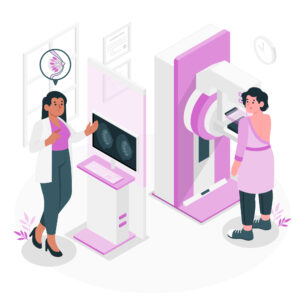
Resources and Support for Individuals Seeking Cancer Screenings
Navigating the healthcare system and accessing the appropriate cancer screenings and check-ups can be a daunting task for many individuals. Fortunately, there are a variety of resources and support available to help guide and empower people in their pursuit of proactive healthcare measures.
One valuable resource is the guidance and expertise of healthcare professionals, such as primary care physicians, oncologists, and specialized nurses. These individuals can provide personalized recommendations based on an individual’s age, gender, family history, and other risk factors. They can also help to coordinate the necessary screening tests and connect patients with the appropriate healthcare services.
In addition to healthcare providers, many communities and organizations offer educational resources and support programs to help individuals understand the importance of regular screenings and check-ups. These may include informative websites, educational workshops, and support groups that address common concerns and provide practical guidance on accessing and navigating the healthcare system.
Financial assistance programs and insurance coverage can also play a crucial role in facilitating access to cancer screenings and check-ups. Individuals should explore their healthcare coverage options, as well as any available government or non-profit programs that may provide financial support or subsidized services.
By utilizing these resources and seeking the guidance of healthcare professionals, individuals can empower themselves to take control of their health and prioritize the early detection and prevention of cancer. This proactive approach can not only improve individual outcomes but also contribute to the broader effort to combat the rising burden of this disease.
Promoting Awareness and Education about Cancer Screenings
Raising awareness and educating the public about the importance of regular cancer screenings and check-ups is a crucial step in promoting early detection and prevention. By disseminating information and fostering a culture of proactive healthcare, we can empower individuals to take charge of their well-being and actively participate in the fight against cancer.
One effective way to promote awareness is through targeted public health campaigns and educational initiatives. These may include media outreach, social media campaigns, and community-based programs that highlight the benefits of regular screenings, provide information on recommended guidelines, and address common misconceptions or barriers to access.
By fostering a culture of proactive healthcare and empowering individuals to take charge of their well-being, we can make significant strides in the fight against cancer. Through continued education, advocacy, and the provision of accessible resources, we can inspire more people to prioritize regular screenings and check-ups, ultimately leading to improved health outcomes and a reduction in the overall burden of this devastating disease.
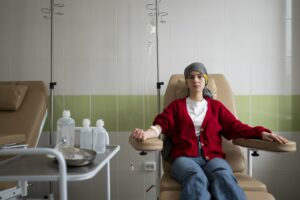
Conclusion
In the face of the rising global burden of cancer, the importance of regular screenings and check-ups cannot be overstated. These proactive healthcare measures play a crucial role in the early detection and prevention of cancer, providing individuals with the best possible chance of successful treatment and improved long-term outcomes.
In the end, the decision to prioritize regular cancer screenings and check-ups is a powerful act of self-care and a commitment to one’s long-term well-being. By taking this proactive approach, individuals can not only improve their own health outcomes but also contribute to the broader effort to reduce the global burden of cancer and create a healthier, more resilient society.


